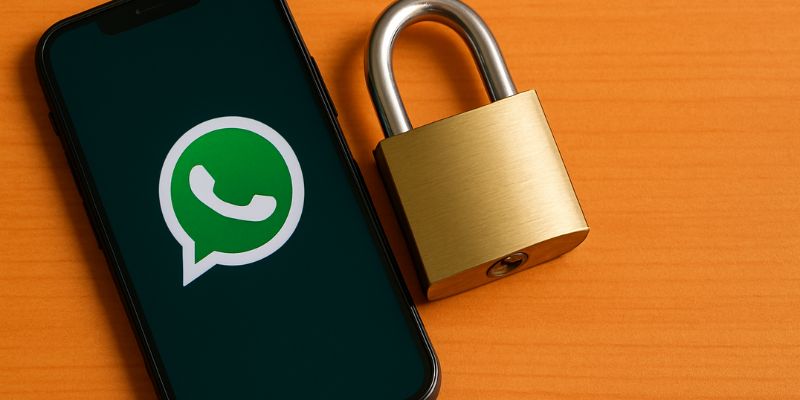Tools to Enhance WhatsApp Account Security
In today’s digital world, securing your online communication is of utmost importance. As one of the most popular messaging platforms globally, WhatsApp offers a plethora of tools to enhance the security of your account. In this comprehensive guide, we will delve into these tools, providing detailed steps and practical tips to ensure your WhatsApp account remains safe from unauthorized access.
Why is WhatsApp Security Important?
WhatsApp’s vast user base makes it a prime target for cyber threats. Ensuring your account’s security is crucial not only for protecting your personal information but also for safeguarding your conversations and media shared with contacts. Unauthorized access can lead to data breaches, identity theft, and misuse of personal information. Therefore, understanding and utilizing the available security tools is essential for every user.
Two-Step Verification
One of the most effective ways to enhance your WhatsApp security is by enabling two-step verification. This feature adds an extra layer of security by requiring a six-digit PIN to verify your phone number on any new device. Here’s a step-by-step guide to enable it:
- Open WhatsApp: Launch the app on your smartphone.
- Go to Settings: Tap on the three dots in the top right corner and select ‘Settings’.
- Select Account: Navigate to the ‘Account’ section.
- Enable Two-Step Verification: Tap on ‘Two-step verification’ and then ‘Enable’.
- Set Your PIN: Enter a six-digit PIN and confirm it.
- Add an Email Address: Optionally, add an email address to reset your PIN if forgotten.
By enabling two-step verification, you significantly reduce the risk of unauthorized access, as even if someone gets hold of your SIM card, they cannot access your account without the PIN.
End-to-End Encryption
WhatsApp automatically encrypts messages with end-to-end encryption, ensuring that only you and the person you’re communicating with can read what is sent. This encryption is always active and cannot be turned off. However, understanding how it works can boost your confidence in WhatsApp’s security:
- Message Privacy: Messages are secured with a lock, and only the recipient and sender have the special key needed to read them.
- Media and Calls: Not just text messages but also calls, photos, and videos are protected.
- Verification Codes: Users can verify the security code visible under contact info to ensure chats are encrypted.
While WhatsApp does this automatically, users can further verify their chats by checking the encryption code with their contacts under the ‘Encryption’ tab in contact info.
Regularly Update WhatsApp
Keeping your app updated is crucial for maintaining security. Developers frequently release updates that patch vulnerabilities and introduce new security features. Here’s how you can ensure your WhatsApp is always up-to-date:
- Enable Auto-Updates: On Android, open the Google Play Store, search for WhatsApp, and select ‘Enable auto-update’. For iOS, go to Settings > iTunes & App Store and turn on ‘App Updates’.
- Manual Updates: Regularly check for updates in your app store and install them immediately.
Regular updates not only enhance security but also improve app performance and introduce new features.
Privacy Settings Configuration
Customizing your privacy settings is another crucial aspect of securing your WhatsApp account. WhatsApp offers several options to control who can see your information:
- Profile Photo: Choose who can see your profile photo (Everyone, My Contacts, or Nobody).
- Last Seen: Control who can see your last seen status.
- About Info: Restrict visibility of your ‘About’ information.
- Read Receipts: Turn off read receipts to prevent others from knowing when you’ve read their messages.
Adjusting these settings enhances your privacy and restricts access to your information, reducing the risk of misuse.
Be Cautious with Links and Attachments
Phishing attacks are common on messaging platforms. Malicious links and attachments can compromise your account security. Here are practical tips to avoid falling victim to such threats:
- Verify Links: Always verify the source before clicking any links.
- Avoid Suspicious Attachments: Do not open attachments from unknown contacts.
- Report Spam: Use the ‘Report’ feature in WhatsApp to report suspicious contacts or messages.
Practicing caution with links and attachments is essential to prevent malware and phishing attacks.
Conclusion
Ensuring your WhatsApp account’s security is a continuous process that involves understanding and utilizing the platform’s security tools effectively. By enabling two-step verification, understanding end-to-end encryption, keeping the app updated, configuring privacy settings, and being cautious with links, you can significantly enhance your account’s security. Remember, cyber threats are evolving, and staying informed is your best defense.
FAQ
Can I recover my WhatsApp account if I forget the two-step verification PIN?
Yes, if you have provided an email address during the setup of two-step verification, you can reset your PIN using that email.
Does WhatsApp offer security for group chats?
Yes, WhatsApp’s end-to-end encryption also applies to group chats, ensuring that all messages within a group are secure.
Is WhatsApp Web as secure as the mobile app?
WhatsApp Web inherits the same security features as the mobile app. However, it’s important to log out after use and ensure the connected devices are secure.
How can I secure my WhatsApp account if I lose my phone?
Immediately contact your mobile provider to lock your SIM card and use WhatsApp’s ‘Change Number’ feature if you get a new number.
What should I do if I suspect my account is compromised?
Enable two-step verification, review your privacy settings, and alert your contacts to ignore suspicious messages from your account.
